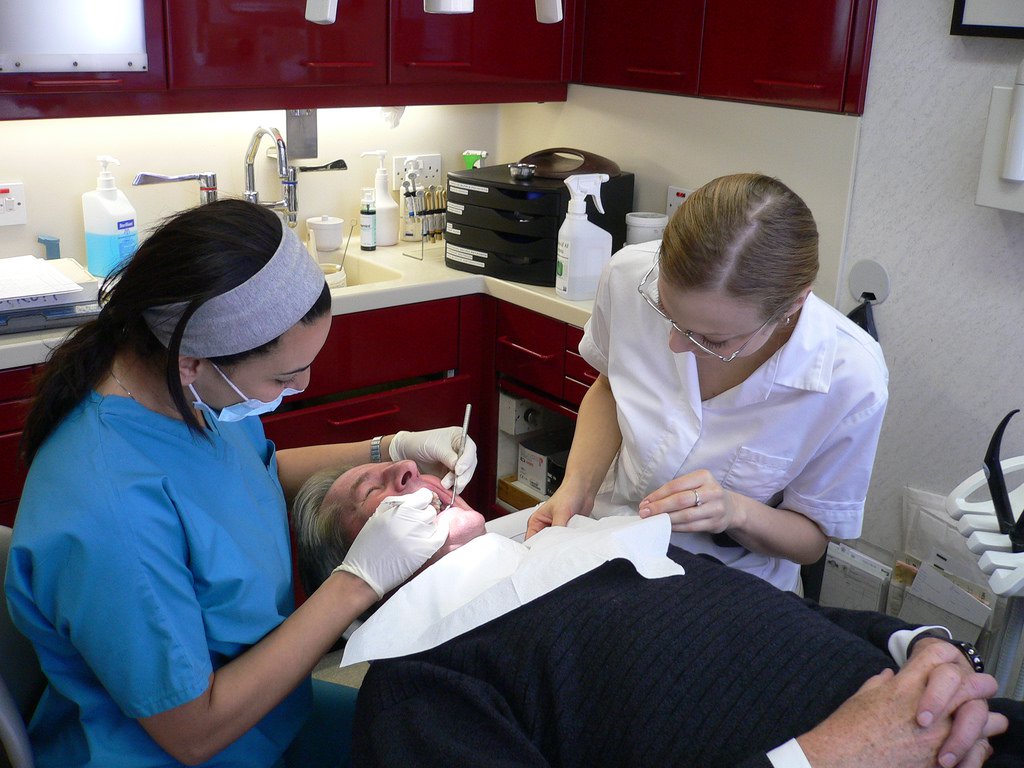What Does it Take to Become a Dentist?
Updated August 19, 2016
Do you remember in elementary and middle school getting asked the question, “what do you want to be when you grow up”? Did you know what you wanted to be when you grew up or were you at a loss? Heck, I bet a lot of us still do not know what we want to be when we “grow up.” If you are unaware at this time what you want to do when you graduate high school, don’t fret. There are plenty of real professions out there to choose from, and dentistry is one of them. If you are at all interested in the sciences, dentistry could be a great option for you.
Being a dentist takes a lot of work. You need to have the proper schooling, as well as an interest in dental health, to keep you going in the industry. In addition, throughout your career you'll need to have ongoing education to keep you up-to-date on the current best practices. If you're considering becoming a dentist, make sure you know what's involved.
Start Early
One of the American Dental Association's (ADA) main recommendations to those who intend to become dentists is that you start early. In high school, take a variety of science and math classes. If possible, take advanced classes or even college courses through your high school career.
If you have decided later in life to become a dentist, don't worry. Not having early exposure isn't going to stop you. However, the more math and science behind the field you know and understand going into a dental program, the better off you'll be.
Work With Dentists

Image via Flickr by HerryLawford
If you can, consider either volunteering or getting a job at a local dentist office. This gives you the exposure you need to really understand the career path. On top of this, it can help you get great references for later in your career. The more you work with dentists, the easier your path becomes.
Luckily, this is not a required step, because it's simply not possible for everyone who wants to become a dentist. While working in a dental office helps you get a leg up on the industry, it will not make or break your career.
Get an Undergraduate Degree
The first required step in becoming a dentist is getting an undergraduate degree. This degree can be in nearly any field you're interested in, however, preference is given to those who have degrees in fields such as chemistry, biology, statistics, and other math- or science-based fields.
In some cases, you might be accepted into a dental school if you have a three-year pre-dental program under your belt. However, most schools don't accept this because it doesn't cover all of their prerequisites. Having a degree will help you get into the dental school of your choosing.
Take the Dental Acceptance Test
To get into a dental school, you'll need to prove yourself. These schools are extremely competitive, and they all require that you pass the Dental Acceptance Test, or DAT. You need to take this in your junior year of your undergraduate program. You can take this test up to three times, to help improve your score.
Keep in mind that because dental schools are so competitive, they give preferential admittance to those who have high scores on the DAT. Because of this, it's important that you understand the questions on the test and what is covered. You can find study materials through your undergraduate school or even online.
Doctor of Dental Medicine or Doctor of Dental Surgery Degree
After being accepted to dental school, you will need to continue your education and get one of the two accepted degrees for dentists — either a Doctor of Dental Surgery or a Doctor of Dental Medicine. These degrees are overseen by the American Dental Association, which sets all requirements for the degrees.
During your graduate program, you can also choose one of the nine dental specialties recognized by the ADA. However, if you choose to specialize, you'll need to have additional training and might even be required to complete a residency program.
Pass Licensing Exams
After you've completed your education, you'll need to get licensed. There are both state and national licensing tests you should complete. Each state has different licensing requirements, so it's a good idea to contact your state licensing department to see exactly what you'll need to do to get licensed.
The National Board Dental Examination is a pass/fail test that you'll need to pass to practice dentistry. This is a two-part test that focuses not only on dental topics, but also basic sciences.
Ongoing Education
Depending on your state, you might need to take more courses throughout your career as a dentist to keep up your license. However, even if your state doesn't require additional schooling, keeping up on your dental education is a good way to make sure you know the best practices, as well as keep up on your overall skills and knowledge.
Work Life
Make sure to consider the day-to-day work of a dentist. You will be performing a variety of tasks on your clients. Not only will you be inspecting their upper and lower teeth, tongue, jaw, and gums, you will be looking for oral lesions that could be suspicious of cancer. You will be filling cavities in adults and children as well as reviewing the medical and dental history on new patients. You will need to order x-rays on most new patients that come into the practice. You will then examine those x-rays for problems or complications. You will need to have a working knowledge of insurance, especially if you want to own your own business as well. Lastly, you will be looking into people’s mouths all day long; make sure that oral health is something you are passionate about before deciding to become a dentist.
If you're considering becoming a dentist, you have a long path of education ahead of you. However, this is a worthwhile career that allows you to help people in all types of situations.





